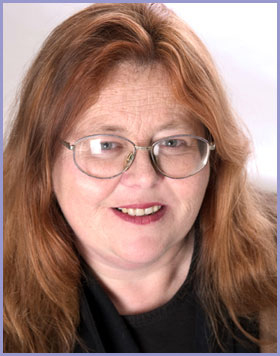 by guest columnist Amanda Mills
by guest columnist Amanda Mills
In 2001, if you had googled “financial therapy” you would have discovered four websites: one in California, Switzerland, Tennessee and mine in Toronto. Today there is an Association, an academic journal and September 11-13 marks the second Annual Financial Therapy Conference, in Atlanta, Georgia, at which I’ve been invited to present.
My concept of financial therapy was born in 1999 following back-to-back tax appointments with two sculptors. Both had made $60,000, yet one had a tax bill of $8,000 while the other owed $4,000. The former had already overpaid and was due a refund whereas the latter’s bill was as yet unpaid. Having to pay is less desirable than getting a refund, but it was odd that the happier sculptor was the one paying twice the tax bill. That was my first lesson: money isn’t about the money.
Over the past decade I’ve learned: women’s relationship to money looks very different from men’s; a great increase or decrease in wealth usually damages one’s relationship to money; trauma leaves its mark on money management just as it does on other aspects of life; money causes a wide variety of addictive behaviours; and our relationship to money seems to cause more stress than our socio-economic class.
Women really do handle money differently than men. In the past fifty years, breaking from our financial dependency has also meant learning to be financially independent. This new world of planning for our retirements, buying our own houses, performing in top level management jobs, etc, has led to oddities such as that a woman is more likely to go bankrupt than to graduate from college, suffer a heart attack or be diagnosed with cancer. In fact, the birth of a child is the most significant predictor of future poverty in a woman’s life.
I’ve learned that there are two financial spectrums: rich vs poor, of course, but also scrambling vs hoarding. Scramblers never have enough to pay their bills while hoarders feel that their pile of money is never big enough.
One’s place on the scrambling/hoarding spectrum is not only more fluid than one’s socio-economic class but changing it reduces an individual’s financial stress far more than changing class (which is in fact extremely stressful.) The scrambling/hoarding spectrum is operative across the entire rich/poor spectrum; there are rich scramblers and hoarders and there are poor scramblers and hoarders.
Extreme poverty generates its own terrible stress, but scrambling and hoarding, impulses that come from our deepest fears, can cause intense feelings of being out of balance – with money, with life.
We give money so much importance and meaning in our culture that it is hard to treat it rationally, especially in our consumerist 21st century. People who access help with their relationships to money find they deal better with all resources and feel much more peaceful in their daily lives. My hope is that through the work of financial therapists across the world money can be taken off its pedestal and put back in a more rational place.
Amanda Mills is a Certified Financial Counsellor, tax professional, financial trouble-shooter, crisis counselor and co-author of a best-selling book on trauma.
